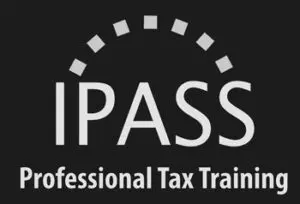Essential Employment Law
This 1 day course deals with some of the most important employment legislation which affects every employer and every employee today. The course will outline the main provisions of each of these separate Acts and will then go on to explain how these principles are applied on a day to day basis.
The course is delivered in a down to earth practical manner and highlights the most common problems which employers have to contend with and offers practical solutions for most situations encountered.
This dynamic course is being delivered by Employment Law specialist Derek Ryan B.L. Derek is a barrister who has extensive practical experience in employment law matters. He has represented numerous people and organisations at hearings of the Rights Commissioners and the Employment Appeals Tribunal.
Attendance at this seminar may qualify for 7 CPD/CPE hours for members of the Institute of Chartered Accountants in Ireland, the Association of Chartered Certified Accountants, the Institute of Certified Public Accountants in Ireland, the Irish Taxation Institute, the Law Society; Accounting Technicians Ireland and other professional bodies.
Courses run from 10.00am – 4.30pm – tea/coffee on arrival. mid-morning & mid-afternoon and lunch will be provided.
| IPASS Member | €275 |
| Non Member: | €350 |
What will be Covered on the Day?
Introduction to Employment Law
– What is law?
– What is the difference between Legislation and Case Law?
– Do Employment Regulations Orders and Registered Employment Agreements apply to you as an employer?
– We will also cover many other topics such as: Complaints Procedures, Compliance Notices and Fixed Payment Services
Terms of Employment (Information) Acts 1994 to 2014
– Most employers are not aware that since 1994 they are obliged to issue every employee with a written Statement of Terms of Employment within 2 months of commencing employment.
– What exactly should a Statement of Terms of Employment contain?
– How does it differ from a contract of employment?
– What can an employer do, if he/she hasn’t issued such a statement?
– Is it too late to issue one now?
– A sample Statement of Terms of Employment will be included in the course material provided to all delegates
Payment of Wages Act 1991
– What employees are covered?
– What is meant by wages?
– Acceptable methods of wage payment
– Written statement of wages
– Legitimate deductions and rules regarding deductions from wages
– Overpayment of wages
– Wage deficiency and redress provisions
National Minimum Wages Act 1991
– What are the main provisions of the Act?
– What employees are covered and who is excluded?
– When is payment of less than the minimum wage allowed?
– What is a pay reference period and how do you calculate the average hourly rate of pay?
– What is meant by reckonable pay?
– What records must be kept?
– Includes changes introduced by the National Minimum Wage (Low Pay Commission) Act 2015
Organisation of Working Time Act 1997 – Holiday & Public Entitlements, Rest & Maximum Working Time Records
– Who does this cover?
– How are annual holiday and public holiday entitlements calculated for full-time, part-time and casual employees?
– What are the most common mistakes made by employers and employees?
– What is the maximum working week and how is it calculated?
– What are the weekly and daily rest breaks?
– How is Sunday working affected?
– What are zero hours contracts?
– Redress provisions, Recording hours of attendance, What records must be kept?
– What format must they be kept in? Exemptions, Failure to keep records, and Form OWT 1
Juries Act 1976
– What are the main provisions of the Act?
– What employees are covered?
– What people are ineligible, excused and disqualified from jury service?
– What employment protection and rights does an employee have during jury service?
– Do employees have to be paid while on jury service?
– How long may jury service last?
– What penalties apply to an employee or an employer for offences under the Juries Act 1976?
Delegates will be provided with excellent course material which can be used as an invaluable reference document and all delegates are provided with free access to our 30 day Employment Law telephone helpline service following their attendance. This course also includes a Question and Answer session.
Benefits for Employers
– Be aware of your obligations as an employer and your employees’ entitlements under current Irish employment law
– Learn how to avoid the most common mistakes made by employers which often result in costly litigation
– Ensure that by taking the correct action at an early stage, you can avoid costly disputes and appearances before the Workplace Relations Commission (WRC)
– Illustrates to employers how employment law affects their daily role in the workplace
Who should attend this course?
Payroll, HR and Finance managers and staff, or anybody who works in, or is responsible for the Payroll/HR function will find this course to be of immense benefit.
Benefits of attending
– An opportunity to put your questions to a specialist payroll consultant
– Small groups to allow time for individual attention and queries
– A detailed handout is supplied to each delegate – an invaluable reference document
– 30 day free telephone helpline service following date of course

